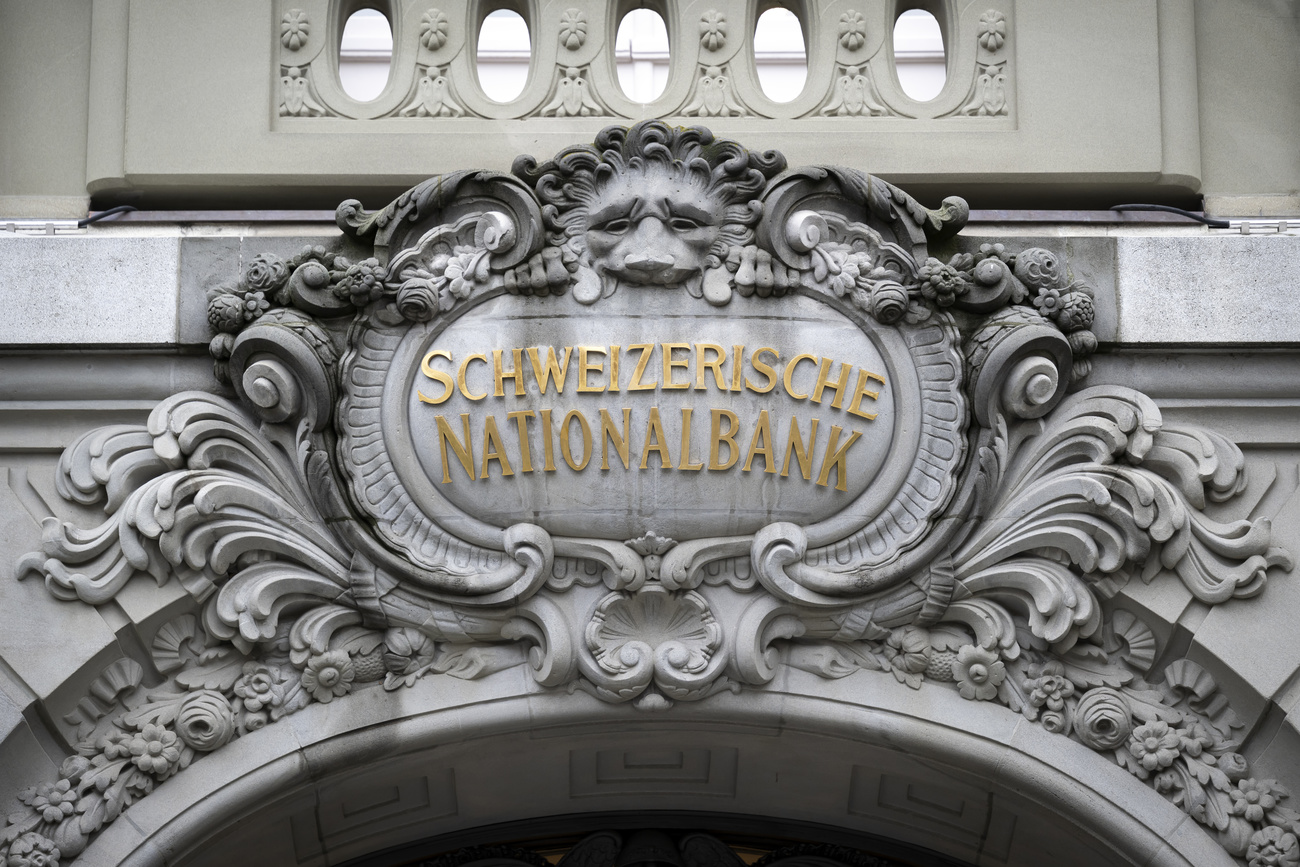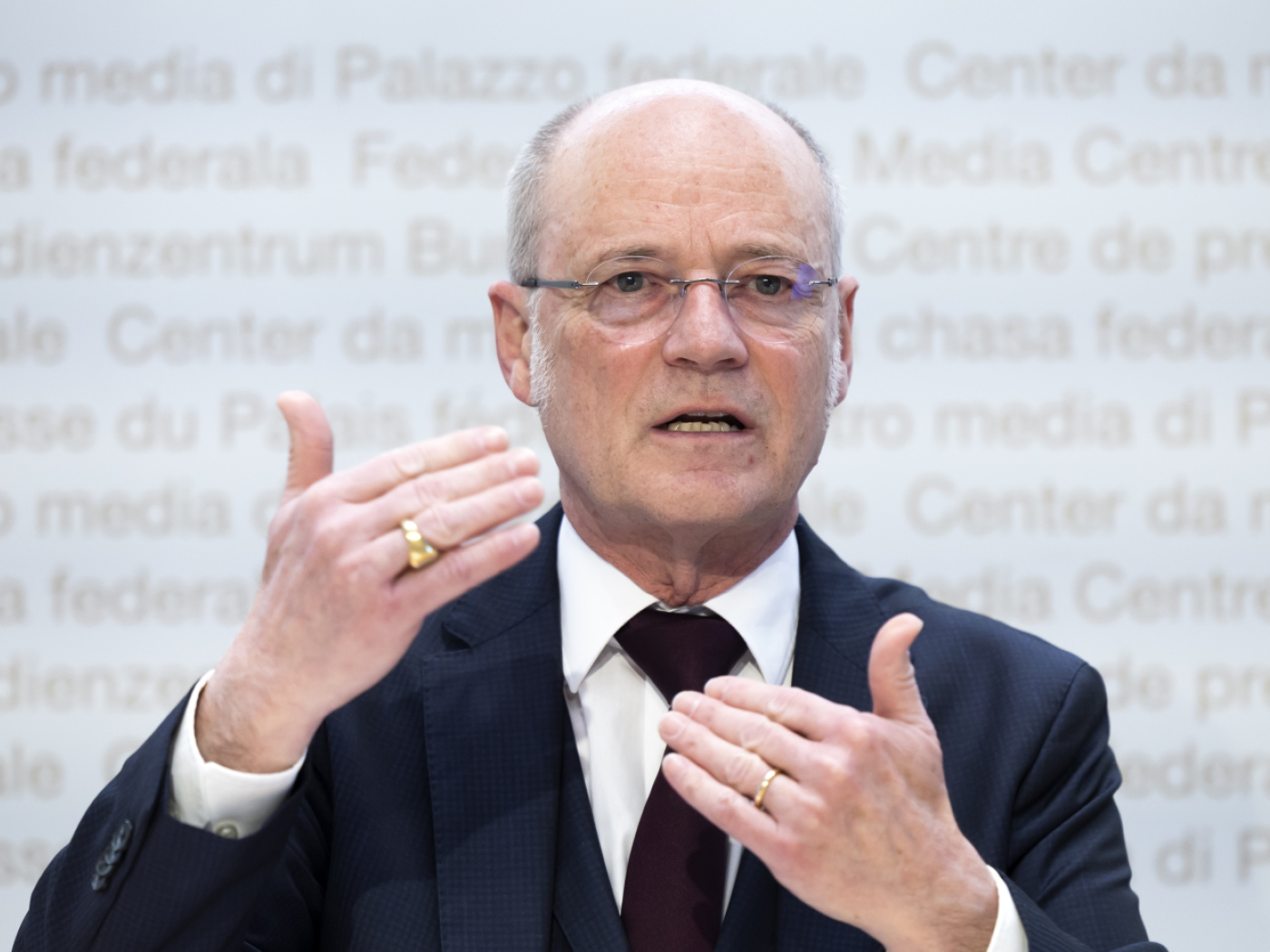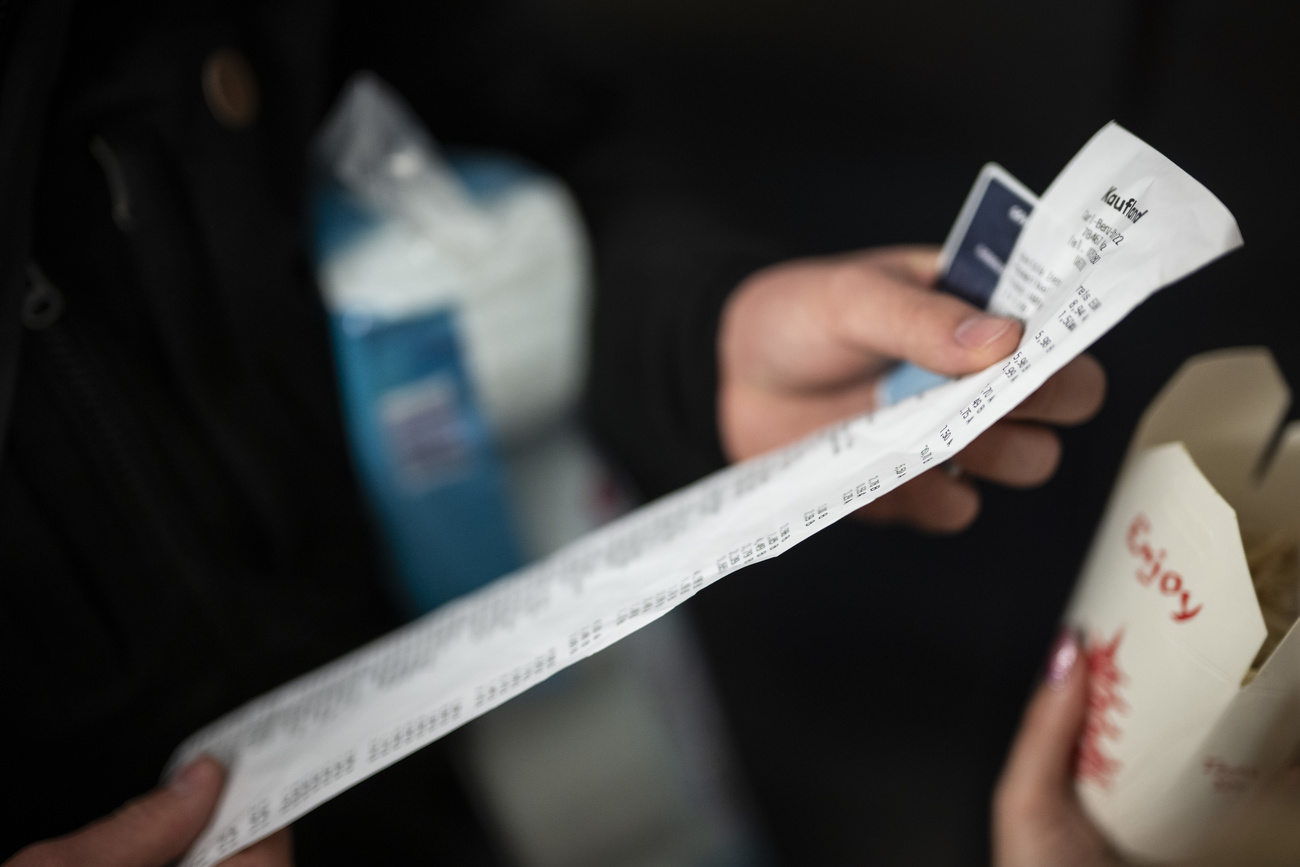Swiss National Bank makes surprise interest rate cut

The Swiss National Bank (SNB) has announced a surprise cut to its key interest rate to 1.5%. The step comes after Swiss inflation dipped to 1.2% in February.
The SNB reduced its headline interest rate by 0.25 percentage points to 1.5% on Thursday, making it the first central bank of a major western industrialised country to do so in the current cycle. In contrast, the US Federal Reserve and the European Central Bank (ECB) recently extended their interest rate pause.
The SNB board of directors, led by outgoing chair Thomas Jordan, who is set to leave this autumn, had already surprised experts in summer 2022 by raising the key interest rate for the first time ahead of the ECB. At the time, it was combatting the sharp rise in inflation following the Covid-19 pandemic.
Price stability
Inflation in Switzerland has been falling for over a year and hit a low of 1.2% in February. The SNB defines price stability as a maximum inflation rate of 2%.
+ What’s in store for the Swiss economy in 2024?
According to the central bank, the most recent drop in inflation was due to lower inflation on goods. At present, inflation is mainly being driven by domestic services.
Price stability is no longer at risk, even with the key interest rate lowered to 1.5%, the central bank said on Thursday. The latest forecast predicts average inflation of around 1.4% in 2024.
+ Inflation in Switzerland averaged 2.1% in 2023
For 2025 and 2026, SNB expects rates of 1.2% and 1.1%, respectively. It said this showed the fight against inflation over the last two-and-a-half years had been effective.
Swiss franc: a weapon against inflation
With its first interest rate cut since January 2015 (when the minimum euro exchange rate was scrapped), the SNB is not only taking into account the lower inflationary pressure – the appreciation of the Swiss franc is also playing a role.
The SNB said that, with a stronger domestic currency, less inflation is imported from abroad. However, it is still prepared to be active on the foreign exchange market, if necessary.
In the past, the SNB has had to use up some of the huge mountain of foreign currency reserves it has built up, selling euros, dollars and other currencies in order to strengthen the franc to combat inflation. In 2023, foreign currencies worth almost CHF133 billion ($149 billion) were sold.
The latest interest rate cut also supports economic development, the SNB said on Thursday. Bank officials have even become slightly more optimistic about Swiss economic growth this year.
Global economy the main risk
However, SNB stressed that weak demand from abroad and the appreciation of the Swiss franc were having a dampening effect and that forecasts were subject to significant uncertainties.
The main risk, it said, was weaker economic development abroad. Inflation could remain higher for longer in some countries and therefore necessitate a tighter monetary policy than expected.
Adapted from German by DeepL/kp/sb
This news story has been written and carefully fact-checked by an external editorial team. At SWI swissinfo.ch we select the most relevant news for an international audience and use automatic translation tools such as DeepL to translate it into English. Providing you with automatically translated news gives us the time to write more in-depth articles.
If you want to know more about how we work, have a look here, and if you have feedback on this news story please write to english@swissinfo.ch.

In compliance with the JTI standards
More: SWI swissinfo.ch certified by the Journalism Trust Initiative





















You can find an overview of ongoing debates with our journalists here . Please join us!
If you want to start a conversation about a topic raised in this article or want to report factual errors, email us at english@swissinfo.ch.